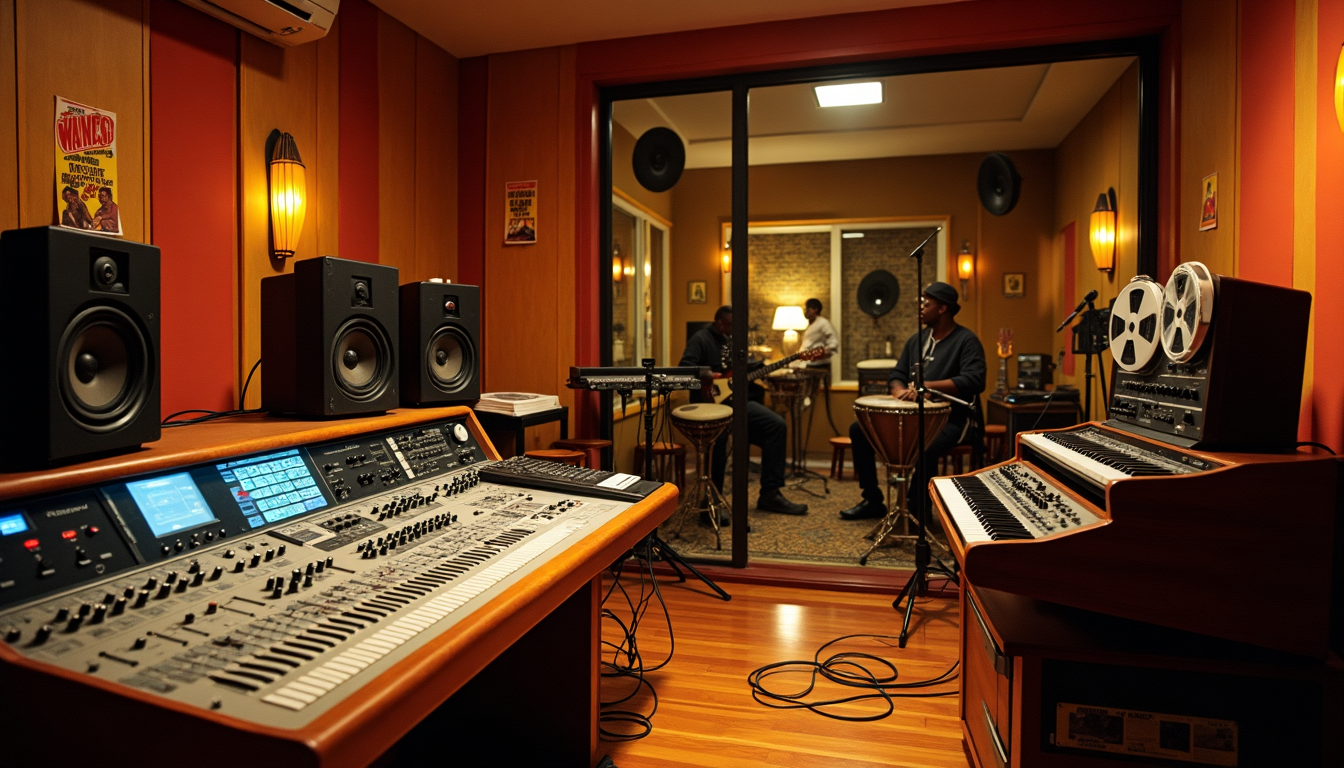
A Decade Of Rhythm: Nigerian Music In The 80s (Part 2)
An Ode To The Songstresses Of The ’80s
In the ’80s, Nigerian music witnessed a commendable influx of female artists into the music industry. Across various genres, these women made their mark. From the Lijadu Sisters, who had established themselves in the ’70s and sustained their influence into the ’80s, to newer voices that emerged possessing unique sounds and distinctive voices.
Salawa Abeni
Salawa Abeni is credited with popularizing Waka music, a genre she put her spin on by blending the Yoruba music tradition with elements of modern pop. With an extensive body of work, she remains an active performer to this day.
Christy Essien-Igbokwe
The Nigerian “Lady of Songs” was admired for her voice, talent, and lifelong contributions to the entertainment industry. Born on November 11, 1960, Christy was a musician, songwriter, and actress. She sang in multiple languages and was also the first female president of the Performing Musicians Association of Nigeria (PMAN). She passed away in 2011.
Onyeka Onwenu
A close contemporary of Christy Essien-Igbokwe was the legendary Onyeka Onwenu, known as “The Elegant Stallion.” These female voices bravely carved out a niche for themselves in a male-dominated industry. Sadly, Onyeka Onwenu passed away in 2024, but her legacy of timeless songs and service ensures she remains in the hearts of Nigerians.
African Stars
Nigeria is well known for appreciating artistic excellence, regardless of where an artist is from. As long as an artist was talented, they found a warm welcome among Nigerian audiences. This was also true of the ‘80s, as the Nigerian music scene wasn’t just shaped by local legends, African artists from beyond the country’s borders contributed to mainstream music.
Angelique Kidjo
Long before she gave us her rendition of “We Are One” from The Lion King, Angelique Kidjo was a notable presence on Nigerian radio airwaves. Born to a Yoruba mother and a Fon father, the Beninese artist started her music career in the early 1980s with the release of her debut album, Pretty. She would go on to achieve global fame, collaborating with younger artists across Africa in the mid-2000s and beyond.
Salif Keita
The Malian singer-songwriter was known for his distinctive style of Afro-pop dance music, a fusion of jazz, blues, and traditional Mande rhythms that made him popular in the ‘80s.
Ebo Taylor
A Ghanaian musician and composer, Ebo Taylor were instrumental in fusing highlife and Afrobeat with jazz and funk. He remained influential throughout the ‘70s and ‘80s with an impressive catalog of work.
Franco Luambo
The Congolese jazz singer and guitarist, who passed away in 1989, captivated audiences across Africa with his masterful guitar skills and music.
Yeah, We Had Reggae Too.
The ’80s was also a good decade for reggae music in Nigeria. Inspired by global reggae icons such as Bob Marley, some Nigerian artists embraced the genre as a tool for social commentary and activism. Majek Fashek, Orits Wiliki, and Ras Kimono were among those who made a lasting impact.
Enjoy Our ’80s Playlist.
As always, we’ve curated a playlist of tracks we love from this era. Whether you’re a longtime fan of “old-skool” music or just a curious listener, we hope you enjoy these classics.
Franco Luambo ft Le T.P.O.K Jazz – Massu
Felix Lebarty – Ifeoma
Peter Abdul – Don’t You Know
Shina Peters – Afro Juju
Fela Kuti – Coffin for Head of State
Majek Fashek – Send Down the Rain
Sonny Okosun – Which Way Nigeria
The Peacocks International Band – This Girl
Mike Okri – Time Na Money
Orits Wiliki – Ten Commandments
Onyeka Onwenu – One Love
Ebo Taylor – Heaven
Joe Nez – Business Trip
William Onyeabor – When The Going Is Smooth & Good
Franco Luambo – Mamou
The Peacocks International Band – Eddie Quansa
Christy Essien Igbokwe – Ever Liked My Person
Nelly Uchendu – Ezigbo Dim
King Sunny Ade – Juju Music
Ebo Taylor – Aba Yaa
The Peacocks International Band – Sambola Mama
Onyeka Onwenu – Iyogogo
Christy Essien Igbokwe – Seun Rere
Conclusion
The 1980s was an interesting period for Nigerian music, characterized by experimentation, political activism, and the rise of iconic artists. It was a time of both continuity and reinvention, where established musicians solidified their legacies while fresh voices emerged to redefine the industry


